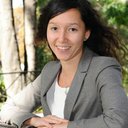Dates: 19-20 April, 2018
Scope
The meeting will focus on proteogenomics, single cell systems biology and cancer epidemiology, and how crowdsourced science, data sharing and a culture of collaboration can help advance research in these fields. We will highlight the solutions of the top performing strategies in the Epidemium program in cancer epidemiology and the recent NCI-CPTAC Proteogenomics DREAM Challenge. We will also brainstorm as a community on the possibility of organizing a DREAM challenge on Single Cell Systems Biology.
Topics
(include but not limited to)
- Proteogenomics
- Single Cell Systems Biology
- Cancer epidemiology
- Crowdsourced science
- Data sharing
Program
Thursday April 19th
DREAM challenges and EPIDEMIUM@RECOMB I
-
Satellite registration
-
-
Welcome and Objectives
-
Gustavo Stolovitzky from the DREAM Challenges and Olivier de Fresnoye from EPIDEMIUM welcome you to the meeting
-
Annabelle Malherbe
-
Using the Netvibes Platform to crowdsource science - Dassault Systems: The 3D Experience company
-
Varsha Khodiyar (Data Curation Editor, Scientific Data)
-
The challenge of sharing data well, how publishers can help
-
Gustavo Stolovitzky (DREAM Challenges)
-
Crowdsourcing Biomedical Research
-
Olivier de Fresnoye (EPIDEMIUM)
-
New path to cancer research
-
Coffee break
-
-
Best performer Epidemium 2018 - Open Cancer
-
Benjamin Schannes, Martin Micalef, Lino Galiana and Benoît Rolland
Best performer Epidemium 2018 - Open Cancer - Grand prize -
Best performer Epidemium 2018 - IDEA
-
Thibaud Blanchard (Epidemium)
Best performer Epidemium 2018 - IDEA - Second prize -
Yohann Sitruk, Olga Kokshagina (Keynote, discussion)
-
Open science with community : avoiding the pitfalls when organizing a collaborative scientific process
Friday April 20th
DREAM challenges and EPIDEMIUM@RECOMB II
-
Henry Rodriguez
-
Introduction to the Proteogenomics challenge
-
Ruedi Aebersold (Keynote)
-
The proteome in context
-
Julio Saez-Rodriguez (DREAM-CPTAC)
-
Overview DREAM-CPTAC Proteogenomics Challenge
-
Sunkyu Kim (DREAM-CPTAC)
-
Best Method & Collaborative phase Subchallenge 1
Predicting Protein Abundance using Matrix Factorization and Biological Networks -
Daniel Quang (DREAM-CPTAC)
-
Best Method’s SubChallenge’s 2&3
Modeling the Determinants of Protein and Phosphoprotein Abundance in Cancers -
Francesca Petralia (DREAM CPTAC)
-
Community Phase of NCI-CPTAC Dream Proteogenomics Sub-Challenge 2 and Sub-Challenge 3
-
Coffee break
-
-
John Moult
-
CAGI and CASP - surprises and lessons
-
David Kreil (TBC)
-
CAMDA, an open-ended data analysis challenge of complex data sets
-
Nikolaus Rajewsky (Keynote)
-
Single cell sequencing to discover mechanisms of gene regulation
-
Discussion
-
Opportunities in single cell data and other emergent data modalities for crowdsourcing
-
Lunch break
-
Roam the streets of Paris...
-
Workshop
-
Workshop: Designing your collaborative open science campaign
- Opening reception + Registration
-
Open to both RECOMB and satellites participants
Keynote Speakers
 Ruedi Aebersold
Ruedi Aebersold
ETH Zürich, Switzerland
[Short bio/abstract]
 Olga Kokshagina
Olga Kokshagina
Mines ParisTech, France
 Nikolaus Rajewsky
Nikolaus Rajewsky
MDC, Germany
 Yohann Sitruk
Yohann Sitruk
Mines ParisTech, France
Keynote/discussion: Open science with community : pitfalls of organizing collaborative scientific process
- Context : pitfalls of open science
- Lessons learned from collaborative open science program Epidemium
- Iterative scientific process
- Mechanisms and tools to support successful open science campaign
Workshop: Designing your collaborative open science campaign
A growing amount of scientific research is done in
an open manner. Numerous examples demonstrate that open initiatives
including crowd, citizen- or open science are dealing with more and
more complex problems, moving towards producing more tangible
results. Still, open science approach is not widely used practice by
researchers. Then why is it difficult to create tangible scientific
outputs with crowds? What are the pain points that actors face today
and how to avoid them? How to ensure the success of your open science
initiatives? What is the future of collaborative open science? We
invite you to our collaborative session that brings together
practitioners & researchers. Our goal is to discuss open science
challenges that actors face and to identify together how they can be
solved.
Program:
- Interactive session : 1. Spot current limits of open science challenges, 2.
Design your open science campaign : participants and organizers’
journey - Wrap up: On the future of open science and
collective intelligence approaches
Organizers
- Olivier de Fresnoye (Epidemium)
- Julio Saez-Rodriguez (RWTH Aachen University)
- Pablo Meyer-Rojas (IBM)
- Gustavo Stolovitzky (IBM)
- Elise Blaese (IBM)
Sponsors



